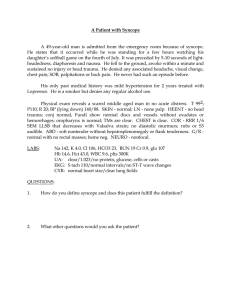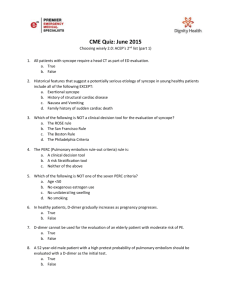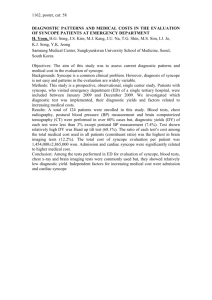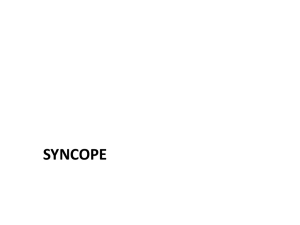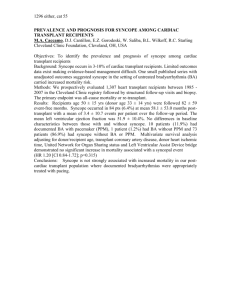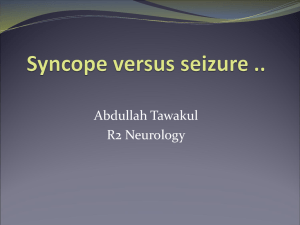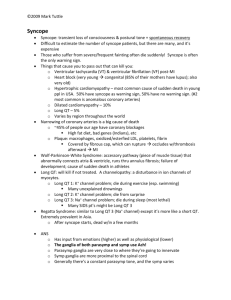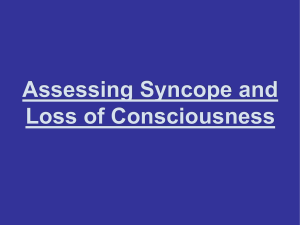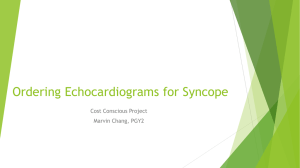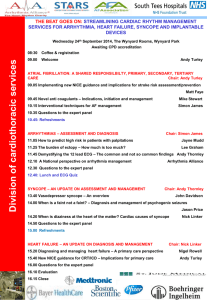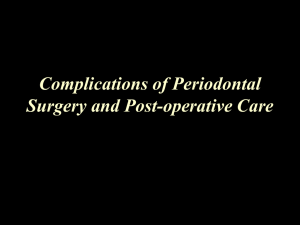ECHOs in Syncope Cost Consciousness Project Aceela Muqri, PGY-2
advertisement
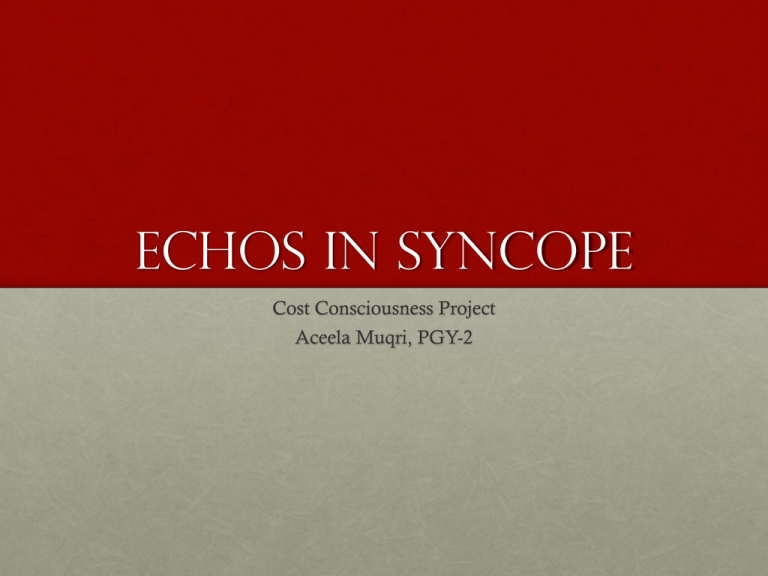
ECHOs in Syncope Cost Consciousness Project Aceela Muqri, PGY-2 Objective • To identify indications for ECHOs in patients admitted for syncopal workup • To assess whether routine ordering ECHOs in patients who are hospitalized for syncope is appropriate • Calculate the cost of ECHOs for the hospital in patients hospitalized for syncopal episode Background • Syncope classified as: • Reflex (neurally mediated) syncope • Syncope due to Orthostatic hypotension • Cardiac syncope (cardiovascular) Cardiogenic Syncope • Bradyarrythmia • • • Sinus node dysfunction AV conduction system disease Implanted device malfunction • Tachycardia • • Supraventricular ventricular • Drug induced bradycardia and tachyarrythmias • Structural disease • • Cardiac: cardiac vascular disease, acute MI, hypertrophic cardiomyopathy, cardiac masses, pericardial disease/tamponade, congenital anomalies, prosthetic valve dysfunction Others: PE, acute aortic dissection, pulmonary hypertension Indications for echo use in patients hospitalized for syncope • Clues indicating cardiogenic cause of syncope • Presence of definite structural heart disease • Family history of unexplained sudden cardiac death or channelopathy • During exertion or supine • Abnormal EKG • Sudden onset palpitation immediately followed by syncope Indications continued • EKG findings suggesting arrythmic syncope • • • • • • • • • • • Bifascicular block Other intraventricular conduction abnormalities (QRS >/0.12) Mobitz second degree AV block Asymptomatic inappropriate sinus bradycardia, SA block or sinus pause >/3s in the absence of negatively chronotropic medications Nonsustained v tach Pre excited QRS complexes Long or short intervals Early repolarization RBBB pattern with ST elevation in V1-V3 (Brugada) Negative T waves in right precordial leads Q waves suggesting MI Study Design • Admissions to Medicine Teams A-G • Dates: April 1, 2014- May 30, 2014 • Patients admitted for syncope identified • Patient’s history/physical, laboratory results, diagnostic imaging (including EKGs), discharge summaries were reviewed • Indications for ECHO use were identified in selected patients • Decision to order ECHO was deemed appropriate as determined by factors concerning for cardiogenic syncope The Study • Inclusion Criteria • Patients who were hospitalized for syncope and had ECHO ordered • Patients had full H/P, DC summary and progress notes in Quest • Exclusion Criteria • • • • No documented loss of consciousness (near syncope, etc) Admitted to MICU, Family Medicine or other services Transfers from OSH Transfers from other services Results • 43 patients hospitalized for syncope • 21/43 patients had ECHO ordered • 11/21 ECHOs indicated • Indications • • • • • 5 arrythmia (bradyarrythmia, tachycardia) 2 palpitations 1 abnormal EKG 1 during exertion 2 known structural heart disease • 10 ECHOs not indicated Results/Costs • 43 patients admitted for syncope in 2 months x 6= 258 patients per year • 10 inappropriate ECHOs in 2 months x 6= 60 inappropriate ECHOs in one year • Charge for ECHO around US $900-3300 • Average charge $2200 • $2200 x 60= $132,000 per year Limitations • Indications for ECHO based on documented data in Quest • Small study size • Other services not included Take home points • Physicians should be educated regarding indications for ECHOs in syncope • Careful thought should be made prior to routine ordering of ECHO for patients admitted for syncope
